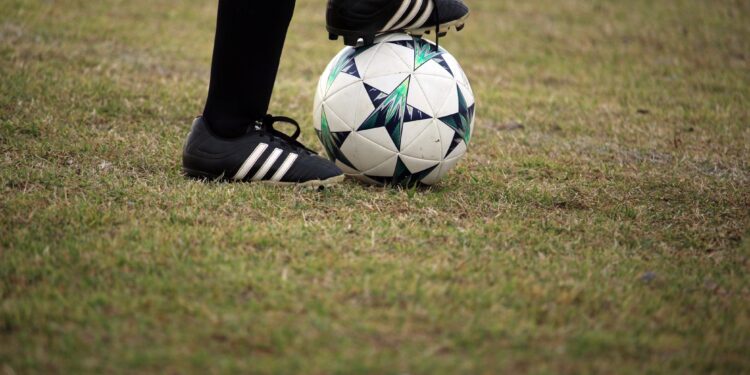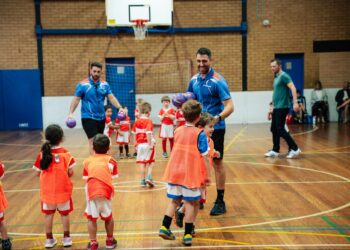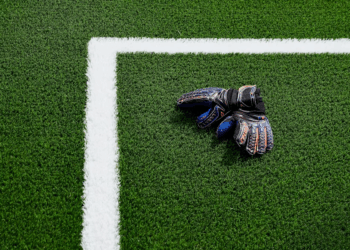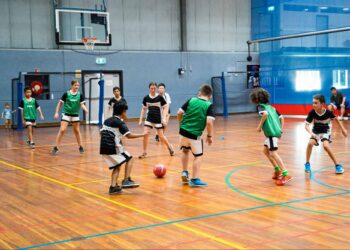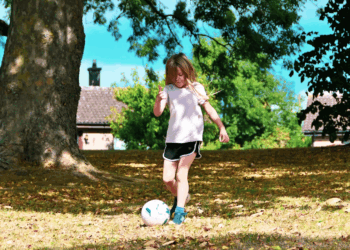In the universe of children’s sport—where muddy knees, halftime oranges, and sideline cheers define the rhythm—there’s one simple truth: sometimes you win, sometimes you lose. And both matter more than we realise.
In Australia, ongoing conversations in parenting circles have questioned whether children’s sports have tipped too far into competition. Should we protect young egos by making every child a winner? Or is there something deeply valuable—irreplaceable, even—about the experience of triumph and, yes, disappointment?
At Soccajoeys, we believe that winning and losing isn’t a flaw in the system—it’s the feature that makes sport such a powerful teacher.
The Hidden Curriculum of Competition
Soccer might look like a game of passes and goals, but beneath the surface, it’s a masterclass in life.
When kids play competitively, they’re not just working on footwork or ball control—they’re developing emotional fluency. They’re building resilience in real time. They’re learning how to stand up after falling, cheer for someone else’s success, and bounce back from setbacks with fresh intention.
Losing and winning becomes a personal feedback loop: a mirror that reflects both strengths and stumbling blocks, without judgement.
The Physical and Mental Upside of Competitive Play
There’s no debate: competitive sport keeps kids healthy. It promotes cardiovascular strength, coordination, spatial awareness, and muscular development.
But in fast-paced games like soccer, the benefits go beyond the body. Competitive environments teach kids to:
Process complex decisions quickly
Think ahead and communicate under pressure
Adjust tactics mid-game
Work within structured roles, without losing individuality
And more than anything, it shows them that failure isn’t fatal—it’s informative.
Winning and Losing: A Social Skillset in Disguise
Soccer fields are mini social laboratories. Kids learn how to cooperate, take turns, celebrate others, apologise, and re-group after miscommunication.
Whether they’re lifting a teammate’s spirits or managing their own emotions after a tough game, children build winning and losing social skills—ones that will serve them in schoolyards, workplaces, and future relationships.
This is why psychologists recommend that kids face loss publicly, among peers. It’s not to shame them—it’s to show them that they’re not alone, that disappointment is shared, and survivable.
“Confidence comes from surviving failure.” – Dr. K, Healthy Gamer
That’s the real win.
What if My Child’s Not “Good” at Soccer?
If your kid is bad at soccer, if they miss the ball more than they connect, or get picked last at recess, it’s natural to worry. But here’s the thing: performance today is not potential forever.
Being “bad” at soccer is often a moment in time—not a life sentence. What matters more is how your child relates to that experience.
Support your child by:
Reframing effort as progress
Letting them see you fail and recover
Telling stories of athletes who started slow
Focusing on joy, not just results
“Don’t get bitter, get better.” – Tiger Woods
“You miss 100% of the shots you don’t take.” – Wayne Gretzky
Every missed goal is a lesson. Every dropped pass is a data point. And with the right mindset, every child can grow—athletically, emotionally, and socially.
What Winning Teaches (Hint: It’s Not Just About the Trophy)
Contrary to what we often assume, winning well is just as hard—and just as valuable—as losing with grace.
Victories teach kids:
How to stay humble
How to acknowledge teammates
How to remain focused even after success
And importantly, that winning doesn’t mean “finished.” It’s simply a step along the path.
Losing: The Unexpected Powerhouse of Growth
Loss stings. There’s no way around that. But it also cracks open space for perspective, for grit, for internal calibration.
In the moments after a loss—tears drying, hands shaking, heads held high—kids are doing invisible work. They’re recalibrating expectations. They’re building emotional endurance. They’re learning to stand in discomfort and come out the other side.
In fact, research shows that children who face setbacks early are more likely to develop emotional regulation and future resilience. It helps give them skills to learn how to accept defeat.
When they lose in front of others—and are still valued, still encouraged, still invited to play again—they learn that failure doesn’t define them. That’s a lesson no participation ribbon can teach.
Real Life Doesn’t Hand Out Medals
Eventually, every child will face a test they don’t ace, a job they don’t land, a situation that doesn’t go to plan.
By learning to win and lose in a safe space, sport helps kids prepare for the emotional complexity of real life. Because on the field, just like off it, things won’t always go their way—and that’s okay.
The Wisdom in Their Words: Quotes About Winning and Losing in Sports
When words fail, let these legends speak for you:
“Don’t get bitter, get better.” – Tiger Woods
“You miss 100% of the shots you don’t take.” – Wayne Gretzky
“Never let the fear of striking out keep you from playing the game.” – Babe Ruth
“Confidence doesn’t come from success. It comes from surviving failure.” – Dr. K (Healthy Gamer, popular Youtuber)
Frame them. Memorise them. Share them on the ride home from the game.
These quotes remind us that both success and failure are just steps along the way—and that the courage to keep playing is what matters most.
Final Whistle: Let Them Feel the Highs and Lows
It can be tempting to shield kids from losing—to soften the edges, tweak the score, hand out trophies to everyone. But real growth lives in the full spectrum of experience.
Let your kids celebrate the win, yes. Let them fist pump, run wild, and feel that spark of achievement.
But also let them lose. Let them cry. Let them sit with it. And then help them stand up, dust off, and go again.
That’s how they grow. That’s how they learn. That’s how they become resilient, grounded, and capable far beyond the pitch.
At Soccajoeys, we believe sport is where life’s biggest lessons often begin. And we’re here to guide your child through every victory—and every hard-fought loss.
Key Takeaways:
Competitive sport supports physical and emotional development.
Losing builds resilience—kids need to experience it to grow.
Winning teaches humility and teamwork.
Every child develops at their own pace—what matters is progress, not perfection.
Learn more about our soccer programs for kids from 2.5 to 11 year olds & K-6.
Not sure you want to commit to an ongoing extracurricular just yet? Soccajoey also provides soccer packages for birthdays and holiday soccer programs, to help more kids develop the love of soccer.



